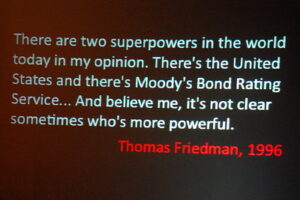In the last several posts, I’ve written about new data regarding the differences between those who finish college and those who don’t. Knowing who doesn’t finish college and why they don’t is important. The stakes for non-completers are high: only 20% of those who leave college without a degree plan to come back.
And, as we’ve seen, planning is central to completion for those who do graduate. Those who start but don’t finish college are less likely to have made a financial plan for going to college. They’re also more likely to have taken student loans. Leaving college has consequences beyond merely not finishing a degree program. The decision to leave college before graduating likely means owing more and earning less than the unsuccessful students would have had they never enrolled.
That’s why it’s important to provide as much support as possible as early as possible to people who may consider attending college. Yesterday, I suggested that our community college should develop resources for parents of middle school children to help them understand the costs of attendance and available options. This includes both financial and academic planning resources. Yesterday, I suggested workshops, but this information doesn’t have to be delivered in person. The college can develop interactive tools to help guide families through the process of college planning.
Outside of planning, another approach to improving the completion rate involves offering mental health services. According to the Sallie Mae data, nearly as many students left college for mental health reasons as for financial reasons. As many as half of all community college students experience serious mental health problems while enrolled in school. Creating on-campus mental health resources for enrolled students is another way to reverse the fortunes of student who would otherwise permanently disenroll.
Helping students finish college is a good investment
There’s a point to all of this. When community college administrators whine about not being able to maintain their enrollment, they’re simply announcing that they’re not doing their jobs. There are multiple approaches to recruiting and retaining students through the point of graduation. These approaches don’t include building health clubs, hotels, and convention centers. Nor do they involve building “retail outlots” in the college parking lot. Or hiring yet another Vice President. These “ideas” merely consume the resources of the community without returning anything of value. They compromise community resources for future generations.
Actionable approaches that enable students to finish college include providing supportive services to students who need help getting through college. A hotel or a Starbucks in the college parking lot won’t help conflicted and resource-poor students rewrite their stories.
We have a community that invests heavily in education. Unfortunately, the current administration and the Board of Trustees do not. That’s ultimately the reason WCC’s enrollment will continue to decline.
Photo Credit: Chris Seward, via Flickr

























